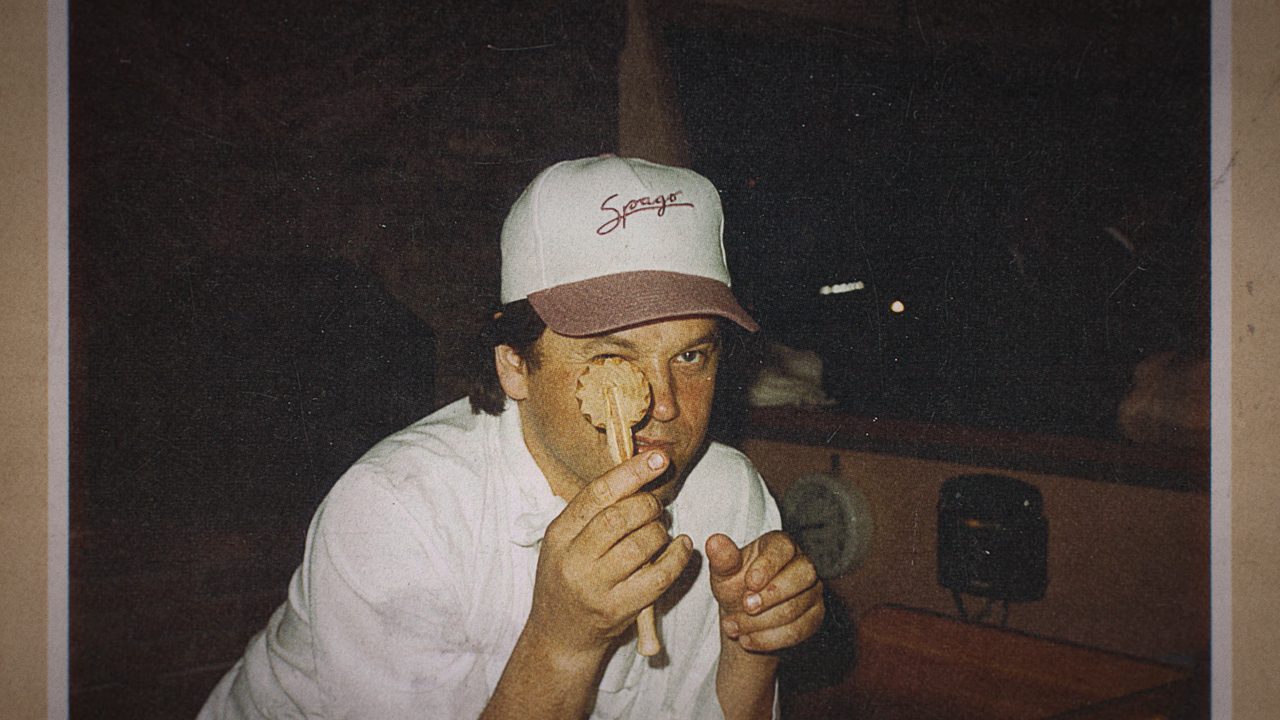You know his name, you’ve likely seen him on television, and chances are that you have eaten at one of his many restaurants. But do you know the story of the legendary Wolfgang Puck?
Directed by David Gelb (Jiro Dreams of Sushi, Chef’s Table), Wolfgang is a new documentary that shows the rise of Wolfgang Puck, the world’s first celebrity chef.
Arriving soon on Disney+, Gelb weaves together this portrait of the naturally charismatic, energetic, and tireless Wolfgang Puck, whose ascent as one of the world’s most successful and well-known chefs comes with an incredible life filled with hardships that audiences likely haven’t heard.
It’s clear how Wolfgang Puck became so beloved as a media figure. His naturally vivacious personality and charismatic showmanship, with that strong Austrian accent, made for a perfect fit for a newly emerging television and celebrity market. A blitz of TV clips featuring Wolfgang dazzling audiences with open flame cooking wows the viewer and sets the stage for his story and rise to stardom.

In parallel to seeing a seemingly infinite amount of clips showing his meteoric success, we’re also taken to Wolfgang’s hometown of Austria, where the chef, in the present day, walks through old places and recounts his memories along the way. It’s here where Wolfgang gives the chef the space and time to get personal in a way that we haven’t yet seen or heard before.
Wolfgang reveals that growing up as a child, he was quite poor and didn’t have much to eat. The kitchen became a refuge to him, the only place that he said he ever felt safe.
More troubling is the revelation that he and his family endured the hand of an abusive stepfather during his childhood, instilling fears in him at a very young age. And after being fired at an early age from one of his earliest jobs cutting potatoes for a restaurant, he found himself overlooking a bridge and contemplating whether or not to jump.
But Wolfgang’s resolved not to give up on his passion, and propelled him to move to Los Angeles at the age of 24 to continue cooking. An early job at a steak joint was disastrous (the doc reminds us that American cuisine in the 70s was bland and uninspired).
Things would soon change though after Wolfgang was hired at Ma Maison, which, after evolving the menu and growing to become the head chef, became one of the most popular eateries in LA.
After toiling for creative control with Ma Maison’s restauranteur, Wolfgang set out to create his own restaurant–Spago–which instantly became the number one restaurant for Hollywood A-listers to dine, do business, and be seen at. Perched on Sunset Boulevard in West Hollywood, we see how food critics and chefs alike gush over how, with its open kitchen and menu offerings like salmon pizza and salads (inventing a new “California Cuisine”), Spago and Wolfgang changed the way things were done forever.
Wolfgang’s natural taking to the world of celebrity would soon thrust him into making national TV appearances, leading to building a brand and empire that would make him universally known as the world’s first celebrity chef. The documentary points out that his appearances on national TV led the way for culinary personalities and entertainment to emerge, such as The Food Network, Emeril, and reality cooking show competitions.

There’s a brief moment amidst all of the chaos where Wolfgang acknowledges that his tireless work ethic was likely motivated by the feeling that everything in his life could fall apart at any moment, likely due to the fears instilled in him during childhood.
Wolfgang feels like the story of a man who, after tirelessly working to build a business empire and now entering the twilight of his years, is finally slowing down to reflect and understand the story of his life. With all of his successes, though, come failures, and large personal ones at that: the end of his marriage to Barbara Lazarof after 19 years (Lazarof helped Wolfgang open Spago and remains the unsung hero of its success) and time not spend with his children during his busiest times are moments that he now reflects upon with remorse.
As we are able to gather, turning away from family was a constant in Wolfgang’s life. There’s a present-day moment where Wolfgang, along with his sister, visits the grave of his grandmother. His sister brings up that when their grandmother was dying, she wanted nothing more than to see Wolfgang by her side. He acknowledges that he was elsewhere, working, and doesn’t intend to linger on the moment or unpack it any further. As the scene ends without much fuss, we are left to realize that the price that his greatness cost him leaving his family.
Although director David Gelb doesn’t pry too far in the way of emotional investigation, one of the things that Wolfgang offers is Gelb’s trademark aesthetics that make his culinary filmmaking so mesmerizing. Gelb shoots food so expressively and cinematically that it captures the magic in food, and it’s exactly what’s needed to make Wolfgang’s story come to life.
Wolfgang feels less emotionally deep than Jiro Dreams of Sushi, which remains the superior film of the two. Because it only briefly touches on darker moments instead of looking to offer tougher emotional breakthroughs, Wolfgang feels like the master chef wants to tell his life’s story, but still hasn’t come to understand its meaning himself. When Wolfgang asks in a fleeting moment, “Who am I? A chef, brand, restaurant, character?” he doesn’t follow to provide an answer. And so we are left to believe that he is everything he’s created all at once: the chef, the myth, and the legend.
Ryan Rojas
Ryan is the editorial manager of Cinemacy, which he co-runs with his older sister, Morgan. Ryan is a member of the Hollywood Critics Association. Ryan's favorite films include 2001: A Space Odyssey, The Social Network, and The Master.

